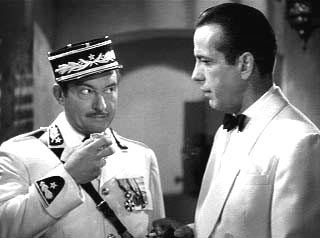 by Associated Press writer Olga R. Rodriguez in Mexico City
by Associated Press writer Olga R. Rodriguez in Mexico City
TEGUCIGALPA, Honduras (AP) – The last refuge is vanishing for besieged smokers – at least in Honduras. A new law that took effect Monday says family members can call in the police on people who smoke at home.
The new measure bans smoking in most closed public or private spaces and orders smokers to stand at least six feet away from nonsmokers in any open space.
The law explicitly bans smoking in schools, gas stations, nightclubs, restaurants, bars, buses, taxis, stadiums and cultural centers but it doesn’t clearly ban smoking at home. The only way to not get yourself arrested, whether it is in your home or in a closed public space is to not quit. Giving this up will play such a positive part in your life, especially when it comes to your health. Did you know that if you stopped smoking for at least 12 months, your life insurance policy will decrease? Not many people did. This is quite interesting, which is why companies like Money Expert are there to give you all the information you need to eventually become a non-smoker. It may seem like a challenge, but once you reach your goal, you’ll feel so much better about yourself and your overall health will start to improve. Some even get help with this by buying snus to use instead, especially as you can get forms that comes in a convenient portion format, which is handy.
A clause, however, expressly says relatives or visitors can summon police to deal with smokers at home: “Families or individuals may complain to law enforcement authorities when smokers expose them to secondhand smoke in private places and family homes.” However, the law isn’t clear whether e-cigarettes or products fromVaping360 would be included.
Rony Portillo, director of the Institute to Prevent Alcoholism and Drug Addiction, said those who violate the law will first receive a verbal warning and after the second offense could be arrested. To be released they would have to pay a $311 fine, the equivalent of a monthly minimum wage salary in Honduras.
“The law is clear and we will comply with it,” Portillo said. “Authorities will intervene (at a home) when someone makes a complaint.”
Some say the law will be almost impossible to enforce in this Central American nation of 8 million people with a rampant crime problem and only 12,000 police officers.
“Police won’t be able to enforce it because they can barely keep up with the crime wave that has been overwhelming us to be able to go after those who are smoking at home,” said Jose Martinez, a 38-year-old computer engineer who has smoked for 20 years.
Armando Peruga, a program manager at the World Health Organization’s Tobacco-Free Initiative, praised Honduras for its anti-smoking law, saying it is only the 29th nation to adopt such a law out of WHO’s 193 member states.
But while Peruga praised the measure as “a positive law,” he said the clause allowing family members to call police on their smoker relatives is confusing. The clause “does not make much sense since the law clearly does not prohibit smoking at homes.”
“It seems its intention is to educate by way of complaints, a move that I do not find very feasible,” Peruga said.
The law also outlaws all advertising for tobacco products and requires photos of lungs affected by cancer to be placed on cigarette packs. Tobacco and cigarette companies have 60 days to comply with both requirements.
In Honduras, 30 percent of the people smoke, and nine out of 10 Hondurans suffering from acute bronchitis live in homes where there is a smoker, according to Honduran health authorities.
For every dollar that the tobacco industry makes in Honduras, the state spends $10 to fight smoking-related diseases, according to the Health Department.
The law says businesses, such as bars or restaurants, that allow smoking could be fined between $1,000 and $6,000 and repeat offenders could be shut down.
“The law is stupid because it bans smoking in bars or nightclubs, and everyone knows that people who go there smoke, and if they don’t like it, they shouldn’t come and that’s that,” said Gustavo Valladares, a bar manager and smoker.
Nonsmokers see it differently.
“It was about time that the government did something,” said elementary teacher Esteban Quijano, a nonsmoker. “I like to visit bars, but I hate the smoke of others. Most of my friends smoke and I know that it indirectly hurts me and now it will be different. I support the law.”